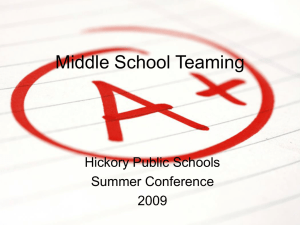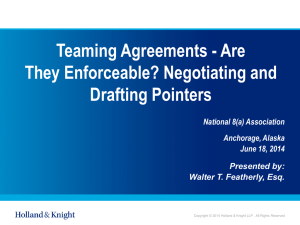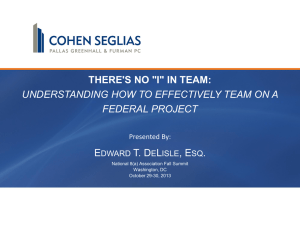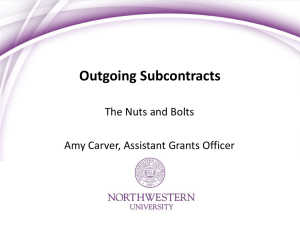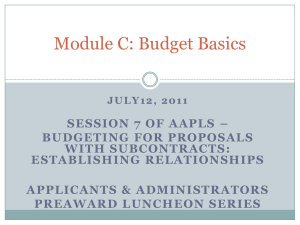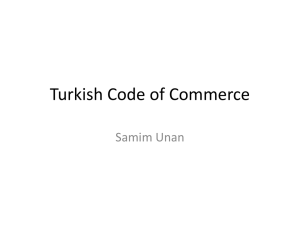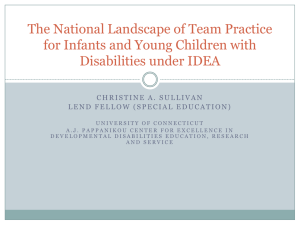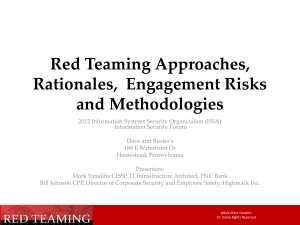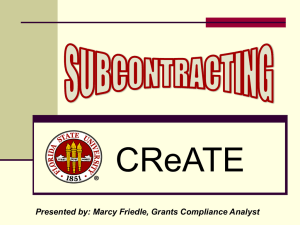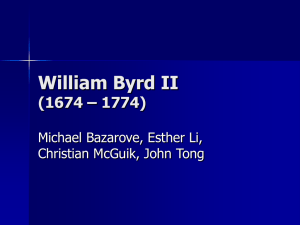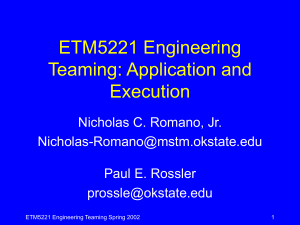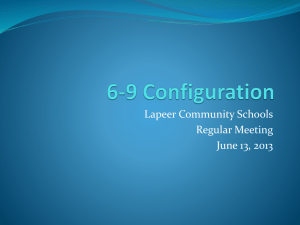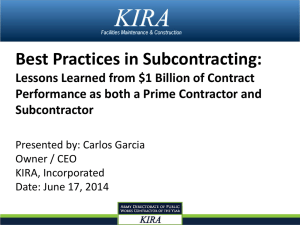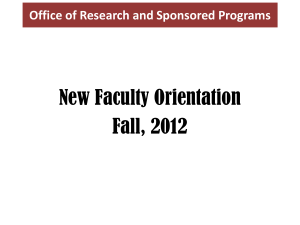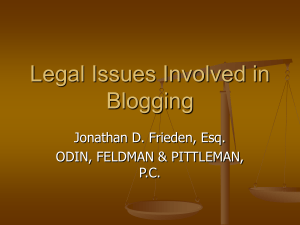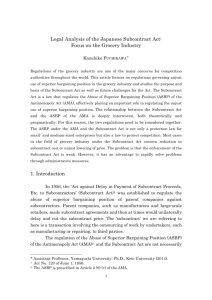here - E-Commerce Law
advertisement
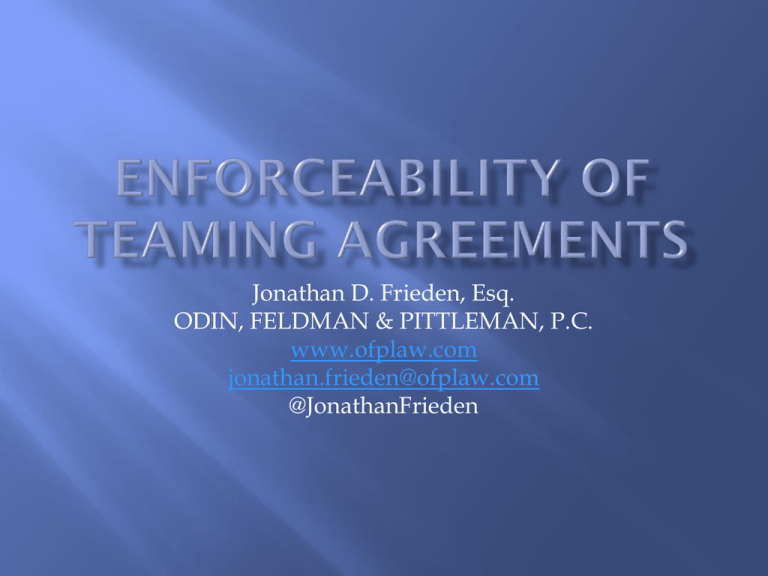
Jonathan D. Frieden, Esq. ODIN, FELDMAN & PITTLEMAN, P.C. www.ofplaw.com jonathan.frieden@ofplaw.com @JonathanFrieden Teaming Agreements should be drafted with the purpose of the specific project and relationship in mind If you use a form teaming agreement for each project, you do so at your own peril Pre-Award Provisions Post-Award Provisions General Provisions Pre-award provisions govern the relationship of the parties as they pursue the Government work Concepts to consider: Exclusivity Division of proposal labor and cost Assignment of leadership and management responsibilities Termination conditions Award of project Award of project to third-party No award by certain time Govern the relationship of the parties once the Government work is awarded to the Prime Contractor and may set forth the terms of the Subcontract relationship Concepts to consider: Work-share Compensation Flow-down clauses Further subcontracting of the subcontractor’s work General provisions govern the overall relationship, whether pre-award or post-award Concepts to consider: Confidentiality Protection of intellectual property Protection of employees and contractors Protection of client relationship Indemnification CASE RESULTS DEPEND UPON A VARIETY OF FACTORS UNIQUE TO EACH CASE, AND FURTHER STATE THAT CASE RESULTS DO NOT GUARANTEE OR PREDICT A SIMILAR RESULT IN ANY FUTURE CASE UNDERTAKEN BY THE LAWYER. The decision “raises questions about the usefulness of these commonly employed agreements-and not just in Virginia.” “’Agreements to Agree’ May Provide a False Sense of Security to Government Subcontractors” Virginia is not “hospitable” to teaming agreements. “This case reinforces the need for contractors to draft teaming agreements carefully to be sure the agreement will be enforced should a dispute arise between the parties.” Mere “agreements to agree” are unenforceable under Virginia law It was a “teaming agreement” written in terms of a future transaction or later, more formal agreement and presumed to be an agreement to agree The parties’ chief post-award obligation was to “exert reasonable efforts . . . to negotiate a subcontract” within certain nebulous guidelines The agreement expressly acknowledged the possibility that such negotiations would fail and provided that the teaming agreement would terminate upon the “failure of the parties to reach agreement on a subcontract after a reasonable period of good faith negotiations.” It is being appealed It applies Virginia law Maryland and D.C. and many other states also hold that “agreements to agree” are unenforceable It doesn’t apply to a teaming agreement’s pre-award provisions It should not have been a surprise to anyone familiar with government contracting in Virginia We expect the District Court’s decision to be affirmed The legal concepts upon which the opinion is based are wellsettled and long-standing It is fundamentally fair and based upon business concepts well understood in the industry It’s fairly easy to follow the law If you intend for the parties to enter into a subcontract once the Government awards word to the prime contractor, attach a copy of the subcontract they will execute as an exhibit to the teaming agreement If you can’t attach the entire subcontract, attach a form subcontract, leaving “blank” only the provisions which cannot yet be included Ensure that the teaming agreement clearly sets forth the specific work to be done by each party, where that work is to be completed, the personnel being used to complete the work, and the compensation to be paid for the work If you intend your teaming agreement to also be the subcontract, don’t act like you don’t Jonathan D. Frieden, Esq. ODIN, FELDMAN & PITTLEMAN, P.C. 1775 Wiehle Avenue, Suite 400 Reston, Virginia 20190 jonathan.frieden@ofplaw.com @JonathanFrieden on Twitter


